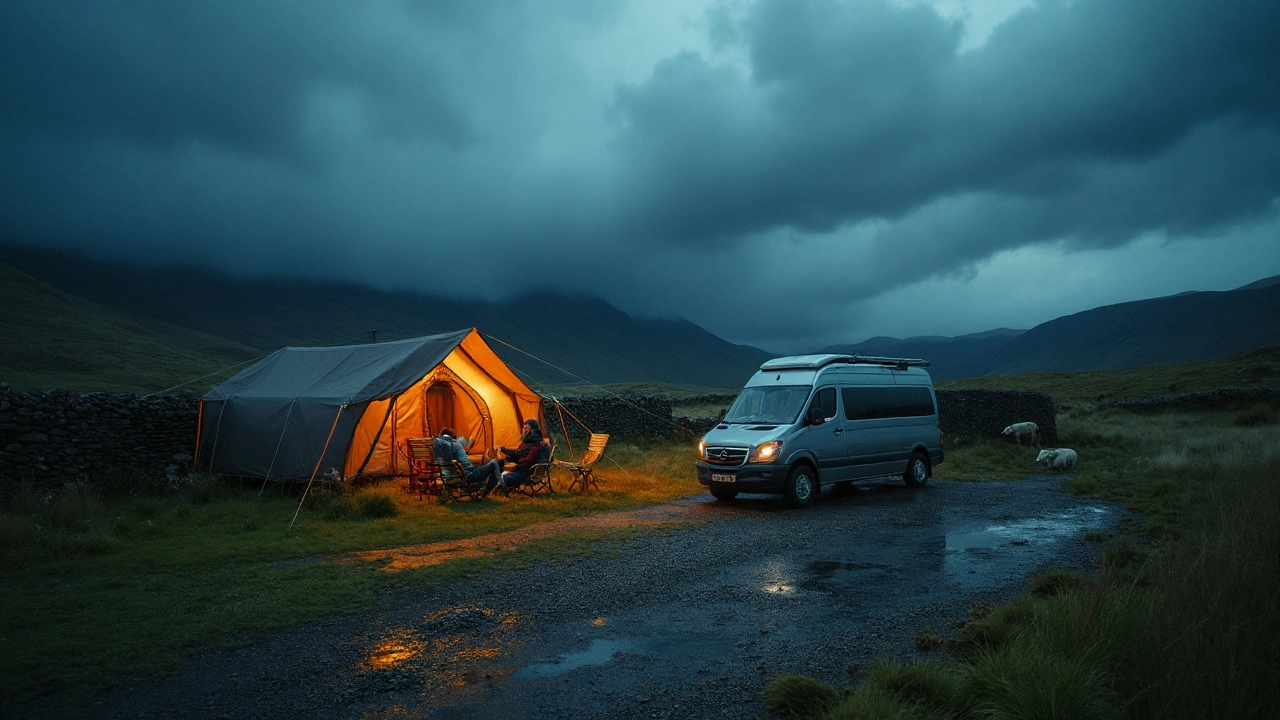
Are Campers Safer Than Tents? Risk‑by‑Risk Guide for UK Campers (2025)
Are campers safer than tents? A clear 2025 UK guide with risk-by-risk answers, trade-offs, checklists, and evidence-backed tips on CO, storms, theft, and driving.
Read MoreIf you love the outdoors, you’ve probably wondered whether a camper feels safer than a tent. Both let you escape the city, but the way they protect you is very different. Below we break down the main safety points, so you can decide which option fits your style and peace of mind.
First up, weather. A camper is built with walls, windows and a roof that keep rain, wind and cold out. That means you stay dry and warm without layering a hundred blankets. Tents rely on good weather or a solid groundsheet, and a sudden downpour can turn an adventure into a soggy mess. If you’re camping with kids or a baby, the camper’s insulated interior is a huge advantage – you won’t have to worry about hypothermia the same way you would in a thin-walled tent.
Ventilation is another factor. Modern campers have vents and fans that you can open or close, giving you fresh air without exposing the interior to rain. Tents usually need manual flaps or mesh windows, and in windy conditions those can let in drafts or even blow the whole shelter away if not secured properly.
Driving a camper adds a layer of road safety you don’t have with a tent. UK motorhome laws require seat belts for every passenger, and the vehicle must pass regular MOT checks. You also get a registered number plate, insurance and a road‑worthy chassis. That means you’re protected if you get into a crash, and the police can identify you easily.
With a tent, you’re on foot most of the time, so road rules don’t apply. However, you do need to follow local camping regulations. Some woods and public parks forbid pitching a tent, and breaking those rules can lead to fines. Campers can park in designated motorhome sites that often have lighting, CCTV and fire safety equipment, giving you extra peace of mind at night.
Another legal point is waste disposal. Motorhomes have built‑in waste tanks that you empty at authorized sites, reducing the risk of polluting a campsite. Tents require you to pack out all your trash, which is easy to forget when you’re tired after a long hike.
So, which is safer? If you value solid walls, heating, and road‑law protection, a camper wins. If you love the freedom to set up anywhere and don’t mind checking the weather forecast, a tent can still be safe as long as you follow local rules and bring proper gear.
Bottom line: campers give you more built‑in safety features, especially for families or cold‑weather trips. Tents are fine for short, fair‑weather outings if you’re prepared. Whatever you pick, keep an eye on weather, respect local laws and always pack a first‑aid kit.

Are campers safer than tents? A clear 2025 UK guide with risk-by-risk answers, trade-offs, checklists, and evidence-backed tips on CO, storms, theft, and driving.
Read More